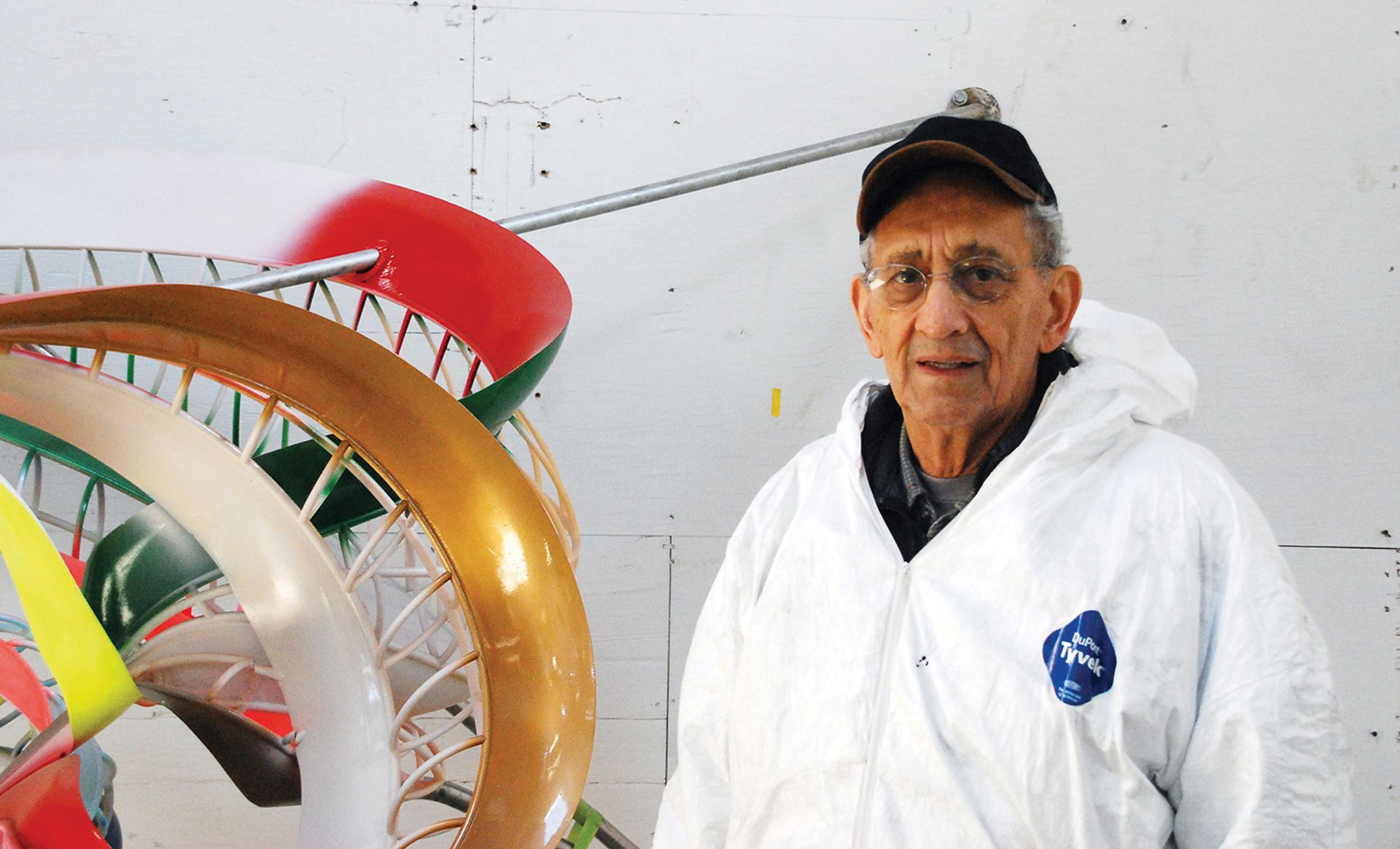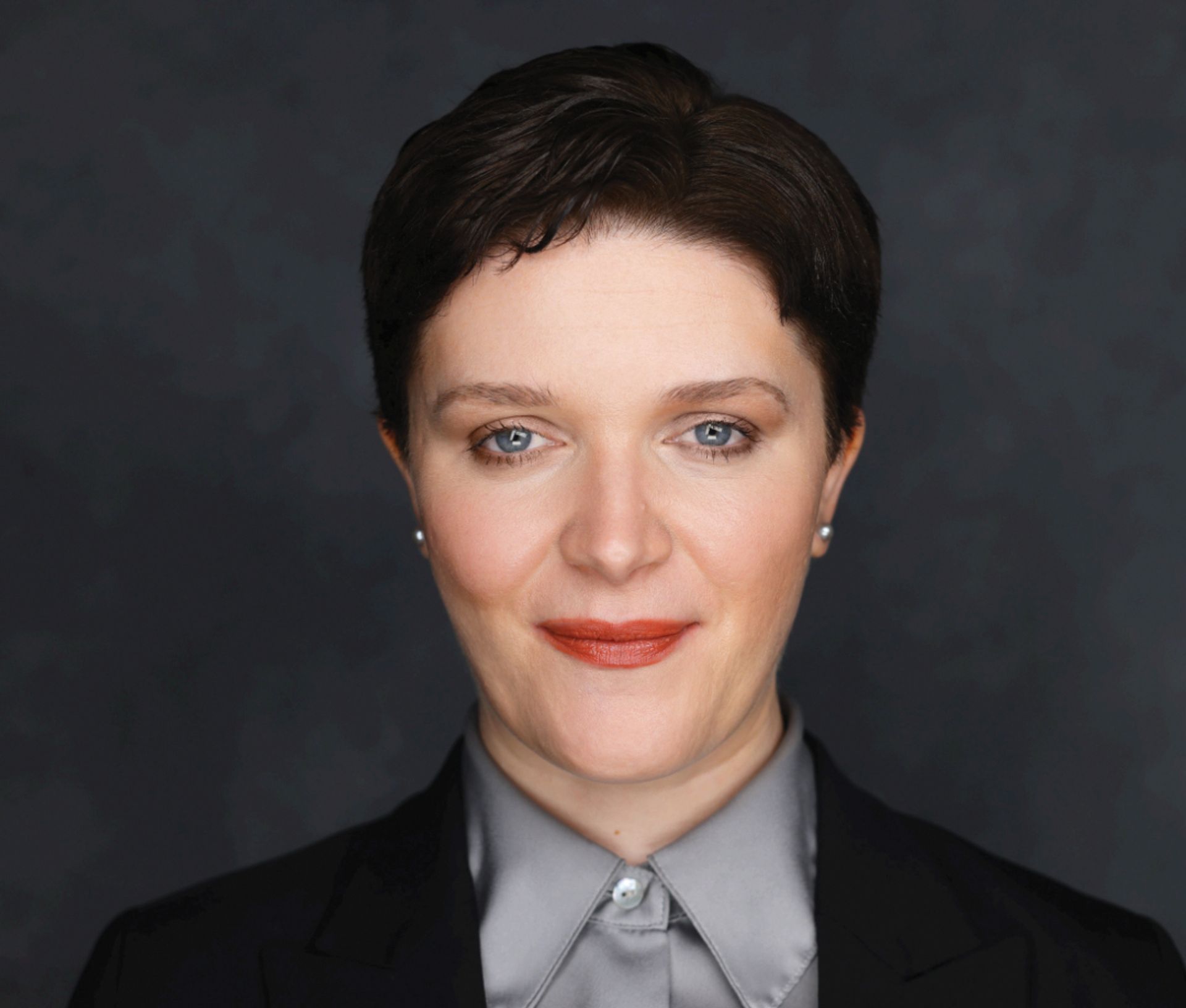For the digital artwork group, life has modified because the 2021 explosion of curiosity in NFTs (non-fungible tokens) that certify provenance and possession of artworks. The precipitous drop in worth of some cryptocurrencies, the far-reaching chapter of the crypto alternate FTX, and the ascent of generative AI (synthetic intelligence) have all drawn focus away from sensible contracts—laptop packages that execute transactions robotically—as a manner of engineering fairness for artists.
With the EU’s AI Act set to grow to be legislation simply because the UK heads to the polls this month, the query now could be whether or not, and the way, authorities would possibly assist artists at a time when creativity is quick changing into the productiveness of the longer term.
Earlier than his death earlier this year, Frank Stella had been a outstanding champion of artists’ rights and the concept of automated royalties. For certainly one of his remaining sequence, Geometries (2022), Stella granted collectors a licence to create a spinoff of a digital work together with a hyperlink to make a 3D print of it. A collaboration with Arsnl Art, the Artists Rights Society’s digital platform, Stella’s sensible contract was coded with a ten% resale royalty to be paid robotically upon additional transfers of the work. Regardless of its repute as a automobile for hypothesis, the NFT has the power to automate royalty funds through sensible contract, which stays certainly one of its principal advantages.

Frank Stella, who died in Might, championed artist resale rights all his life Katherine Hardy
For Katarina Feder, the chief govt of Arsnl, “The NFT blew open the dialog about resale royalties, nevertheless it didn’t render them legally binding.” In the course of the bull market of 2021, the marketplace for digital artwork was typically celebrated as a “creator economic system”, with artists benefiting from ongoing gross sales of their work. Nevertheless, the crash of 2022 led to a decline in secondary market gross sales of NFTs, and subsequently royalty funds to artists. Heightened competitors for collectors prompted main NFT marketplaces equivalent to OpenSea and Blur to cease remitting royalties, which has given rise to a “collector economic system” that more and more resembles the artwork world. In Feder’s view, the introduction of a digital gross sales tax would assist “to guard artists from self-interested collectors and grasping public sale homes that aren’t legally compelled to pay royalties”.
The issue for any new authorities wishing to show the UK right into a haven for digital artists, or a buying and selling hub for digital property, is that it requires embracing Web3 applied sciences—blockchain, NFTs, and sensible contracts—at a time when the broader digital economic system nonetheless depends on a centralised Web2 structure. As a distributed ledger, the blockchain’s inherent decentralisation is a problem to nationwide governments as a result of it permits for peer-to-peer transactions and subsequently potential criminality. But Web3 additionally has the ability to confront the exploitation and extraction that plague tech-capitalism. The conversion of the Ethereum blockchain to a brand new mode of consensus by which transactions are confirmed throughout its distributed community has rendered it concurrently 99.95% extra vitality environment friendly. The truth that the overwhelming majority of NFTs are traded on Ethereum signifies that it could assist assist and develop the cultural economic system into the longer term.
Whereas digital artwork was the proof of idea for NFTs, it was the web platform Dada that coded royalties into its sensible contracts for the primary time in 2017. Led by Beatriz Ramos and Yehudit Mam, whose treatise The Invisible Economy established a blockchain-based various economic system for the humanities, Dada presents an area for folks world wide “to create spontaneous visible conversations collectively, regardless of language, distance, nationality, or different synthetic boundaries”. By capturing the worth of the artwork, it goals to “reward folks for his or her contributions with a passive earnings through a token economic system”. With its unique core rooted in Latin America, Dada embodies the progressive pressure of Web3’s in any other case anarcho-capitalist politics.
What Dada pre-empted and The Platform in the end enacted was a social sensible contract that enabled “fast and exact distribution of income to all those that contributed worth.” Based by Sparrow Learn and Melissa Gilmour, The Platform allowed Mam to publish her novel Quién te manda (2022) in a manner that compensated everybody concerned. Designed as an NFT, the mission used Ethereum’s ERC-1155 token normal to allocate royalties to completely different contributors: 35% to the writer and to the author, with the remaining distributed between the duvet artist and ebook designer. By fractionalising compensation, The Platform acknowledges that creation practically all the time entails collaboration. At a second when one’s digital productiveness could be screen-captured, and subsequently quantified, sensible contracts will help to monetise what was as soon as invisible labour and automate fairness within the course of.
For Mam, the issue with sensible contracts is their lack of ability to scale. “As a group grows and the variety of contributors will increase, it turns into more and more tough to remunerate pretty.” Ramos argues that it’s merely “not possible to implement royalties in a decentralised ecosystem”, which is the place authorities regulation may truly make a distinction. When the UK launched its Artist’s Resale Proper Laws again in 2006, fears that it could power native sellers to promote in Switzerland or the US, the place no royalties are due, proved unfounded.
Uncoupling artwork from cash
One platform that seeks to uncouple artwork from cash completely is zeroone. In return for creating a brand new work, customers are granted ten credit with which to gather works by different artists. Whereas some have criticised the mission for encouraging artists to present away their work, for others the present economic system has benefited their markets. In keeping with the mission’s co-founder, Ludovica Rosi, what makes zeroone completely different is that “the viewers isn’t a gaggle of passive likers or followers however somewhat buyers—deeply invested collectors who assist creators of their careers”.
Art Blocks has included charitable giving into its sensible contracts because it launched its market in 2020, popularising generative artwork (made with code) and elevating over $50m for charities within the course of. However for many corporations, sensible contracts stay tough to deploy. Nick Hladek, a knowledge analyst at Toyota, places it plainly: “As a lot as it could ache diehard crypto-libertarians, the expertise must be positioned totally below the hood of merchandise whether it is ever to realize any traction in the true world.” That is exactly the issue that Artwork Blocks’s chief govt and founder, Erick Calderon, has sought to resolve with Generative Goods, a brand new platform to develop “physical-optional digital-optional merchandise with real-world utility which can be verifiably distinctive”. The power for shoppers to generate a one-of-a-kind digital or bodily object that’s a part of a wider “household” of merchandise distinguishes generative manufacturing from the meeting line. More and more, it is usually a part of the calculus of luxurious homes eager to have interaction a brand new era by distinctive digital experiences.
Fairly than trying to regulate the blockchain itself, governments may give attention to collaboration with exchanges and platforms, offering regulation and the power of legislation as a service
Chris King, ClubNFT
For Harry Halpin, who works to make sure digital privateness by constructing decentralised infrastructure, sensible contracts will help to revive belief within the operations of presidency by their transparency. “Merely put, for those who want to drain the swamp, a sensible contract might make rather more sense than assist for Trump,” he says. Mockingly, trustlessness—not needing to depend on a trusted third social gathering—has been a part of the logic of Web3 because the Bitcoin White Paper. But in line with Chris King, co-founder of ClubNFT (the place, for full disclosure, this author manages editorial), “the trustless net truly relies on belief. Authorities, particularly native authorities, can convey belief to automated exchanges, whereas the injury from authorities missteps could be mitigated. Fairly than trying to regulate the blockchain itself, governments may give attention to collaboration with exchanges and platforms, offering regulation and the power of legislation as a service.”
Forward of the final election, Labour and the Conservatives have been protecting their powder dry. London stays a worldwide hub for the inventive industries, which grew 60% quicker than the broader economic system within the decade earlier than the pandemic. But in line with a current research by the thinktank Erskine Analysis, “rising knowledge and trade insights recommend a necessity for strategic motion”. For Eliza Easton, founding father of Erskine, “A brand new authorities wants to extend funding in R&D within the inventive industries in an effort to catalyse native multiplier results, whereas guaranteeing that the funding is long-term and never fad-driven.”

Racheal Muldoon sees that course of because the mannequin for an automatic digital economic system involving AI, blockchain and sensible contracts Courtesy of Rachael Muldoon
Racheal Muldoon, a London-based lawyer, has been on the coronary heart of disputes involving NFTs and cryptocurrency. In her view, the UK is as a lot as eight years behind the EU in drafting a complete framework for AI regulation. Which means “the brand new authorities of the day will probably be left with no different possible choice than to repeat the EU’s AI Act, however all too late, leaving corporations with inadequate time to conform”. Nevertheless, she is unequivocal on the transformative capacity of sensible contracts if adopted broadly to automate transactions. “When you’ve got the legislation of England and Wales offering guardrails for interoperability between the ‘holy trinity’ of blockchain, accountable common and generative AI algorithms, and sensible contracts, then you may have an automatic economic system. That could be a future for the UK.”
• Alex Estorick is a author, editor and curator with an curiosity in rising applied sciences. He’s editorial director at ClubNFT and editor-in-chief of Right Click Save




